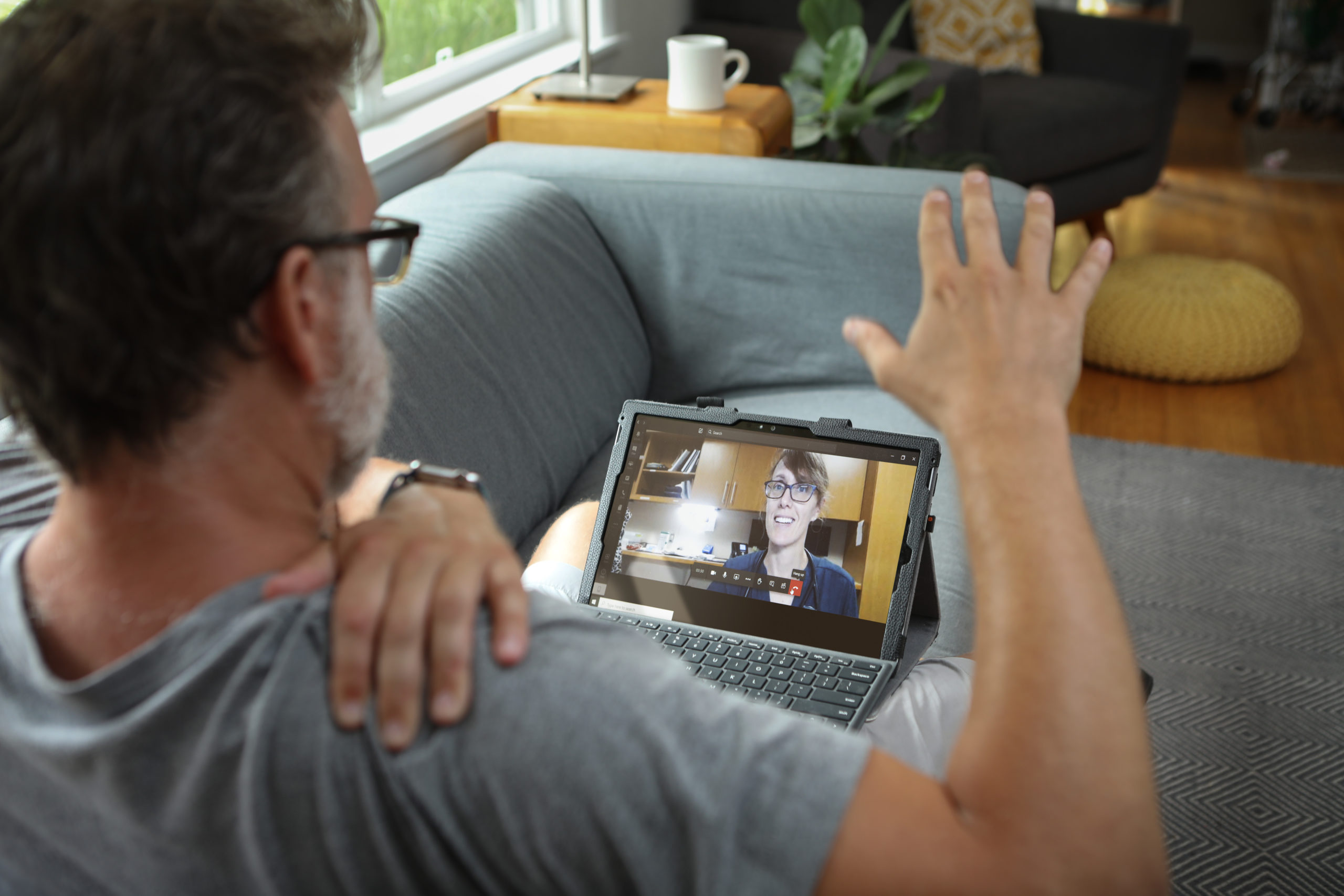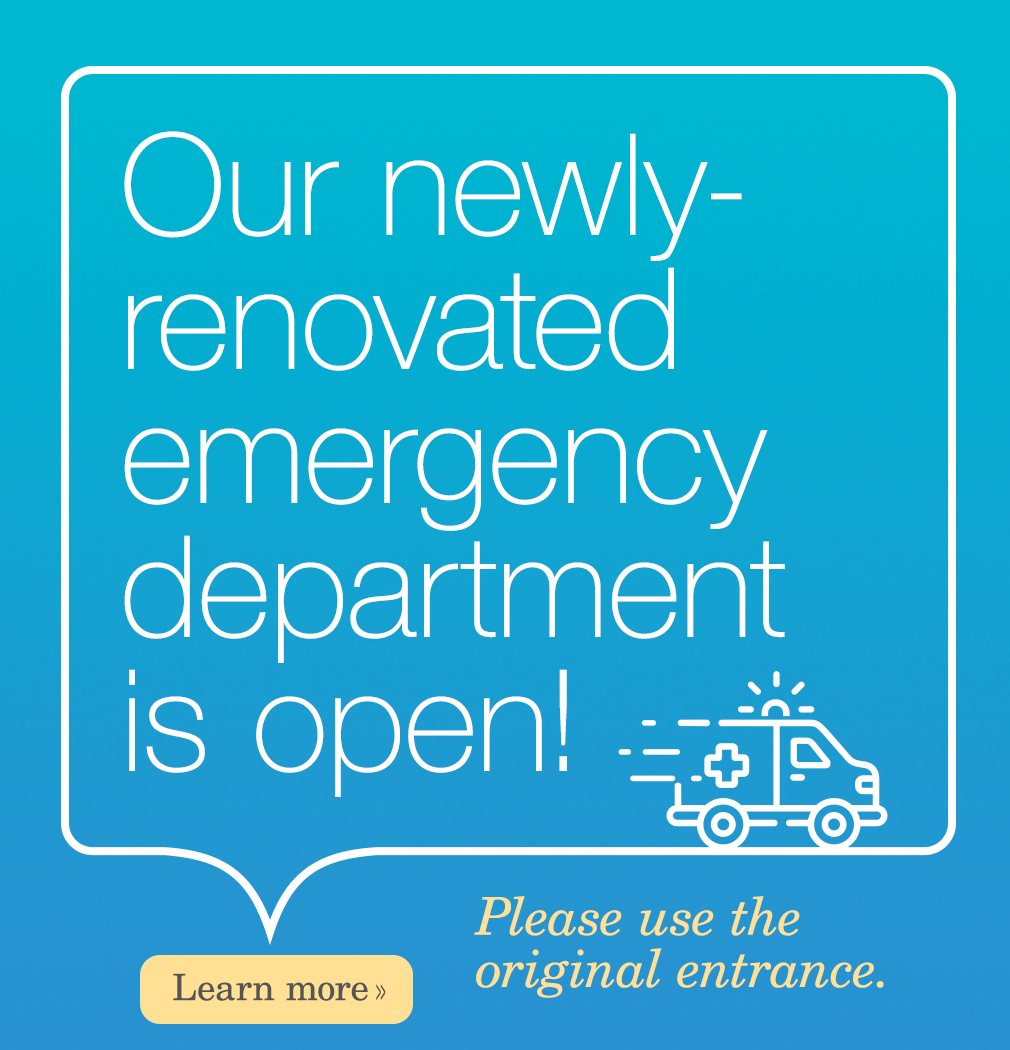

Telemedicine: A Virtual Reality
Many patients are utilizing virtual communication with health care providers, since the onset of COVID-19 began challenging in-person medical visits, earlier this spring. Whether by phone call, via mobile app or computer assisted video chats, speaking with your doctor has never been more convenient.
Circumstance prompted Richard ‘Dick’ Crandlemire, of Richford, to begin telemedicine appointments for necessary care, from the comfort of his home. Virtual care is especially welcome for Crandlemire, 79, who utilizes a mobility wheelchair and has difficulty hearing.
“Mr. Crandlemire is a fall risk and we have been able to focus in-person visits with myself and his specialists to spare unnecessary visits to town,” says Nurse Practitioner Sarah DeSilvey, APRN-C, of the Northwestern Georgia Health Center.
“Especially during this time of COVID-19, it’s been a relief not to have to go into the office,” says Polly Crandlemire, who, as her husband’s primary caregiver, attends every appointment.
When a remote meeting was first suggested, the Crandlemires received technical support from the office. “We feel comfortable with it all now,” says Polly, “It makes a big difference knowing you’re not alone and they are there to help you get set-up.”
Using Facetime for iPad, a platform they were familiar with, the Crandlemires have had two appointments with DeSilvey, to date. In addition, they have utilized Zoom for appointments with Neurology at UVM; and reverted to a phone conversation with another specialist, when his chosen video platform failed due to technical issue.
DeSilvey says she meets with six to eight patients each day via telemedicine platforms designed specifically for healthcare providers, such as Doxy Me, Doximity and the MEDITECH Virtual Visits, which are standardized to meet HIPAA requirements.
While the patient and provider agree there are benefits to both in-person and telemedicine appointments, they say video interfacing does provide a personal, face-to-face experience.
“It’s good for Dick to see her (DeSilvey’s) face and be able to ask her questions,” says Polly. As a result of his hearing impairment, his wife says he often reads facial expressions or watches people’s mouths as they speak, which the video platforms allow for. “It’s better than a phone call. It’s not as good as an in-person visit, yet as follow-up medicine, it is a good way to receive care,” she adds.
“The primary benefit of telemedicine is to keep people safe,” DeSilvey reminds us. “But in addition, I have found it really beneficial for patients with psych, pain, and addiction medicine needs as these patients often require frequent visits,” says DeSilvey, adding that it is also great for folks with transportation concerns.
“The online experience has been good, I like it,” says Dick Crandlemire. “It sure saves my wife from having to drive us 40-miles to Georgia.”
“I’ve had no problem with the telemedicine appointments,” he says. “Next week I have a pre-op appointment and annual wellness check, so those require my presence.”
Beyond the convenience of telemedicine remain situations when it is prudent for patients and providers to meet. “There are certain disease monitoring standards that we know are important,” says DeSilvey. Narrowing in-person assessment and lab draws to the most necessary, she says, helps maintain standards. “We want to avoid unnecessary contacts, but a person still needs to be assessed fully based on the risks of their condition to be safe.”
While DeSilvey sees a future for telemedicine, she says there is a lack of infrastructure stability in some rural areas that need to be addressed. Poor internet and cellular service limits video capacity for some patients, as well as a limited amount of equipment such as blood pressure cuffs, for remote monitoring. “Without more robust remote monitoring, this means in person, so we strike a balance,” she says.
The Crandlemires will see DeSilvey at NMC’s Urgent Care office, while the Georgia Health Center remains closed. “We’ve been going to the Georgia center for over twenty years. We like it there and do not feel like changing now. It’s good to know there’s someone that cares, and goes above and beyond,” the Crandlemires say, of the care provided by DeSilvey.
“With Dick’s situation, meeting on the computer has made it all easier to handle. There’s nothing hindering us from doing it again,” says Polly. “Yet, he has so many medical appointments that I don’t think we could do them all through telemedicine, forever.”

